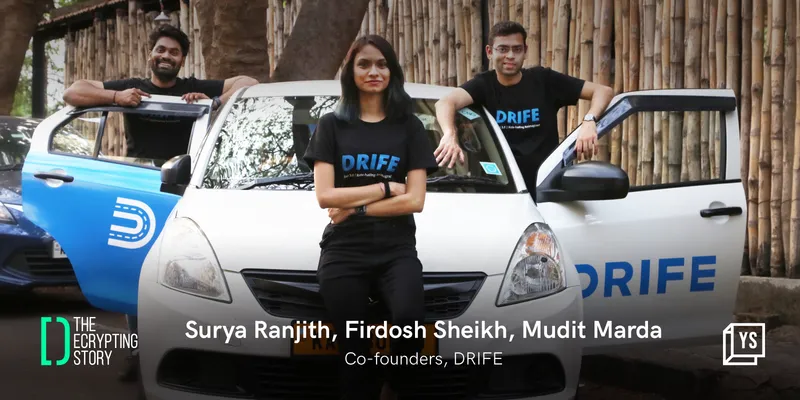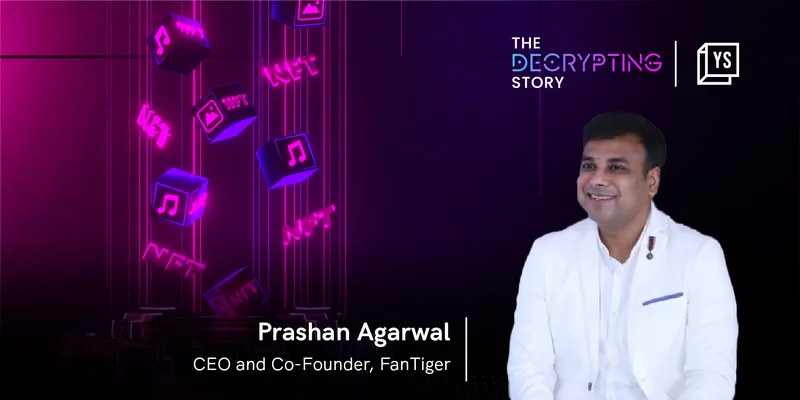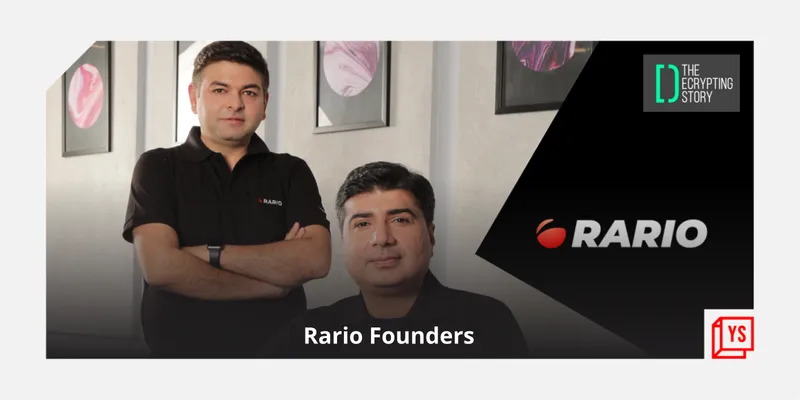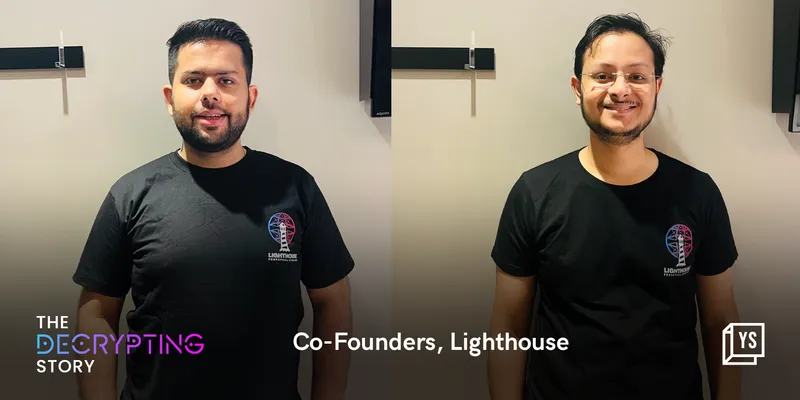Top 10 Web3 Indian startups we covered in 2022
Despite prevailing bear market conditions, Indian crypto and Web3 founders continued to build in 2022, with a firm belief in their visions for the mainstream adoption of blockchain apps.
2022 has been one of the most topsy-turvy years in crypto and Web3—especially for India.
It looked bright at the start–from leading crypto exchanges and deploying large sums of money in expanding operations, raising $450 million, Coinbase entering India with UPI integration, new Web3 startups cropping up, and more.
But things quickly changed, with the central government’s implementation of 30% income tax on crypto profits, 1% TDS on crypto transactions, and NPCI rejecting Coinbase’s UPI feature (leading to the exchange effectively putting its India plans on hold).
With crypto trading and revenue already in the red, the crash of the LUNA (Terra) ecosystem and the bankruptcy only exacerbated the crypto contagion.
Nevertheless, Indian crypto and Web3 founders continued to build in 2022, with a firm belief in their visions, and the hope that the current bear market will give way to the next wave of mainstream adoption of blockchain apps.
Here are ten of the most inspiring and innovative Web3 startups covered by The Decrypting Story in 2022.
DRIFE

The woes of using and services in Indian metros came to the forefront in 2022. Lack of available cabs, ride cancellations, and price surges have made ride-hailing services increasingly difficult to use.
Looking to solve this problem is , a project by Firdosh Sheikh and co-founders Surya Ranjith and Mudit Marda to build a ride-hailing experience with zero commission taken from drivers, market-dictated pricing, open governance, and transparency.
Founded in 2021, Drife’s blockchain-based ride-hailing experience features no commission from drivers, market-dictated pricing, open governance, and transparency.
CropBytes

Remember Farmville?
is a Farmville-esque Ethereum-based farm-simulation game that allows players to own farms, fungible tokens of virtual food, farm animals produce, etc., as well as NFTs, and participate in the in-game economy to earn tokens.
Having been around for over 4.5 years, CropBytes has landed over half a million users and over 400,000 organic downloads across Android and iOS.
The game earns revenue by taking a one percent commission on transactions on the platform, and also from flash sales of in-game assets such as wells, lakes, land, farm animals, etc.
Huddle01

Imagine a Zoom built on Web3.
Built by Ayush Ranjan and Susmit Lavania, is a P2P (peer-to-peer) video calling and communications platform that does not rely on centralised servers.
This allows it to achieve low latency and high performance. Huddle01 is free to use, does not require any registration, and does not track user data.
It also provides Web3-rich features such as token-gating, NFTs as profile pictures, decentralised storage for meeting recordings (on IPFS and Filecoin), decentralised live streaming (on Livepeer), and more.
Shardeum

2022 proved the Layer-1 wars were far from over. One prominent Layer-1 project launched was by founder Nischal Shetty and Omar Syed.
Shardeum is reportedly the only network to employ auto-scaling, where it can increase and decrease capacity in an automated manner, and achieve infinite scalability.
It also features dynamic sharding–where each node added to the Shardeum network will aid in boosting TPS (transaction per second).
Since Shardeum is EVM-enabled, it supports smart contract-based decentralised applications (dApps) that function on the Ethereum blockchain. It uses a Proof of Stake + Proof of Quorum consensus model.
FanTiger

Started by ex-Gaana CEO Prashan Agarwal, is a new way to own music.
The startup connects artists with fans through NFTs. On the platform, owning a fractionalised NFT of a song allows the holder to earn royalty income based on the song's performance on Spotify, YouTube, Gaana, etc.
On the artists’ side, FanTiger is a way to raise funds for and earn income for an upcoming song.
The platform has already signed up with artists such as Sunanda Sharma and Naalayak for their music releases. It claims to have several more partnerships in the pipeline, with a focus on music in languages such as Punjabi, Tamil, Marathi, Bhojpuri, and more.
Arcana Network

Providing a comprehensive stack to help blockchain app developers build secure, privacy-preserving apps is , a blockchain startup founded in 2019 by Mayur Relekar, Aravindh Kumar, and Abhishek Chaudhary.
Arcana has built a storage and privacy stack for Ethereum DApps and works with devs across crypto, NFTs, DeFi, etc. In fact, it also works with Web 2 (non-decentralised) products in fintech, healthcare, SaaS, etc., to bring privacy and security to data.
The startup’s privacy stack provides onboarding for Web3 users using social auth or passwordless logins, as well as features to store user data securely, provide data access, etc.
Rario

For entrepreneur Ankit Wadhwa, India’s massive community of cricket fans was the best place to start with NFTs.
In Gurugram in 2021, he started , one of India’s earliest cricket-based NFT platforms with a marketplace feature for users to buy, sell and trade Rario NFTs, and presenting cricket fans with a digital collector's experience.
The officially-licensed digital player cards platform produces digital cards for the Hero Caribbean Premier League, Lanka Premier League, Abu Dhabi T10 League, etc, and has a roster of over 1,000 international cricketers such as Rishabh Pant, Virender Sehwag, Rashid Khan, Aaron Finch, Faf Du Plessis, Jason Holder, and more.
Spheron

acts as a deployment aggregator startup, helping developers deploy their full-stack apps to the decentralised cloud.
It provides a developer experience for deploying instantly, scaling automatically, and serving personalised content on decentralised networks.
Started by Mitrasish Mukherjee and Prashant Maurya, the idea for Spheron came into being during Arweave’s accelerator programme, where its MVP (minimum viable product) was showcased.
The startup provides a simple way for developers to use various blockchain protocols without having to learn new languages.
Lighthouse Storage

What if you could pay once and store your files forever? Nandit Mehra’s is a blockchain startup developing a protocol to store files perpetually (or through a permanent ownership model).
It enables users to interact with, pay for storage, and get a verifiable record of storage through Ethereum, Polygon, BNB Chain (previously BSC), Fantom, Optimism, and more.
The startup facilitates permanent storage of files on Filecoin—a system of persistent data storage built on IPFS (InterPlanetary File System), which is a decentralised network to store, request, and transfer data. Both are complementary networks built by Protocol Labs.
Additionally, it allows developers to build decentralised apps on top of it to retrieve data from its storage network.
LegitDoc

With , the startup Zupple helps issue tamper-proof digital documents to stakeholders that can be verified from anywhere around the world, within seconds.
The blockchain-powered startup was co-founded by Neil Kevin Martis, Shesha Vishnu, and Neelu Khatri, who observed the need for an on-chain document issuance and verification system.
The startup has been working with the Maharashtra government and started issuing on-chain caste certificates to up to 65,000 tribals in Gadchiroli in a bid to stop fraudulent claims on government benefits for the disadvantaged.
(This story has been updated to correct a typo and founder details)
Edited by Megha Reddy







